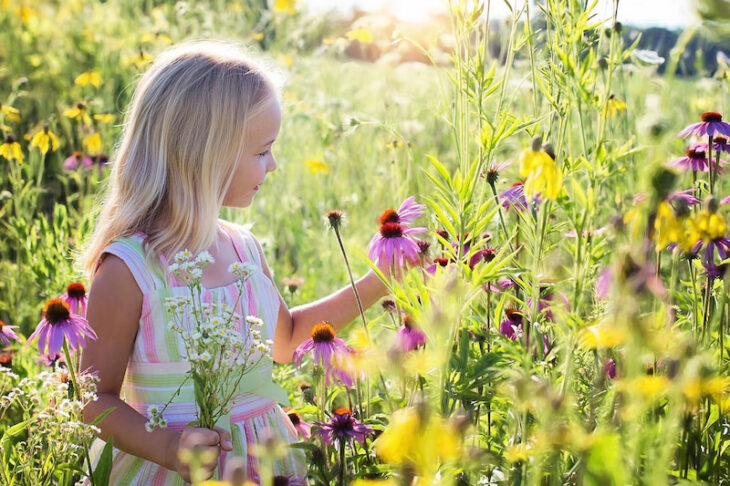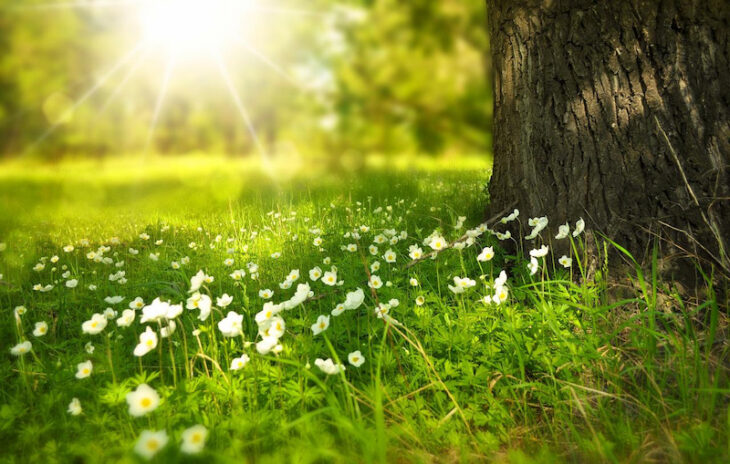Disclosure: Articles may contain affiliate links. As an Amazon Associate, we earn from qualifying purchases (at no additional cost to you). See our full disclosure here.
Last updated on March 29th, 2024 at 11:59 pm
It’s never too early to teach your kids to appreciate nature. In fact, the sooner they learn, the better. They need to be able to appreciate the natural world and understand how important it is to take care of the earth for the well-being of humans, animals, and the the planet itself.
You can start by taking them on hikes and nature walks and pointing out different plants and animals. You can also show them how to garden. As they get older, you can teach them about the importance of recycling and conserving resources. By instilling these values in your children at an early age, you’ll help them develop into responsible adults who care about the earth.

1) Why is it important to teach your kids to appreciate nature?
There are many reasons why it’s important to teach your kids to appreciate nature. For one, they should understand and enjoy the world around them. This appreciation will instill a sense of wonder, which can lead to a lifelong love of learning about and caring for the world around them.
Additionally, it’s important for kids to understand the role that humans play in the environment. They need to know that we have an impact on the planet and that our actions can either help or harm the earth. This knowledge can help instill a sense of responsibility. They’ll learn that we all have a duty to take care of the planet and its resources.
2) How can you teach your kids to appreciate nature?
There are many ways to start teaching your kids about nature. One way is to have them experience it by taking them on nature walks when they’re young. Then get out, and explore your state and national parks as a family as soon as your children are old enough.
Camping is also a terrific way to introduce children to the great outdoors and all it has to offer. Use these opportunities to point out different plants and animals, and help your children understand the interconnectivity of all life. You can use a camping “scavenger hunt” to help little ones explore and learn about nature.
Another terrific way to introduce kids to nature is through gardening. Gardening helps children learn how plants grow and how they can provide us with food, oxygen, and beauty. Even setting up and caring for a small container garden can be a wonderful experience for kids.
And, there is so much to learn from gardening! For example, you can teach your kids about what it takes to make a plant grow strong and healthy, about the role of bees and other pollinators in plant reproduction–everything from pine tree reproduction to flower reproduction to fruit reproduction!
You can also teach them about the importance of water and sunshine for plant growth. As they get older, you can introduce them to more complex concepts such as composting. You can even start composting at home.
3) What can kids learn as they get older?
As kids get older, you can teach them about the importance of recycling and conserving resources. Make sure your children see you being responsible with trash and recycling. Teach your kids about the different ways to recycle, such as reducing, reusing, and recycling. If you set a good example, they’ll be more likely to understand that we must be responsible in how we use the earth’s resources.
Kids can also learn about the importance of conserving water and energy. For example, they can be encouraged to take shorter showers, turn off the lights when they leave a room, and unplug appliances that aren’t in use. By teaching kids these simple habits, you’ll help them understand the importance of taking care of the planet.
Older children can also learn about the different ways that humans impact the environment. For instance, they can learn about air pollution, water pollution, and deforestation. They can also learn about the role humans play in climate change.
4) Why is it important to instill these values in your children at an early age?
When you instill these values in your children at an early age, they’re more likely to develop into responsible adults who care about the planet. The sooner they learn to appreciate nature, the better. If we wait until they’re adults and hope they learn about these issues, it may be too late. We need to act now if we want to preserve the earth for future generations.
When you teach your kids to appreciate nature, you’re helping them understand that it takes a commitment from all of us to preserve the earth and its resources.
This is so important because humans have become a very destructive force on the planet. We’re polluting the air, water, and soil. We’re cutting down forests and destroying habitats. We’re overfishing the oceans and driving many species to extinction. If we don’t change our ways, we could cause irreparable damage to the earth.
But, it’s not too late to make a difference. We can all do our part to protect the planet. And it all starts with us!
5) What are some other ways to teach your kids to appreciate nature?
In addition to getting outdoors on hikes or gardening, there are countless other ways to teach kids about nature. You can take them to a local park or nature center. You can also buy them books about nature or watch documentaries with them. There are so many great resources available that can help your children learn about the natural world.
Talk to your children about the need to preserve habitats for wildlife. You can even create a natural backyard habitat or participate in a local restoration project. And, if your kids love animals, take them to a farm, ranch, or animal sanctuary where they can learn more about what animals need to survive in the natural world.

When you teach your kids to appreciate nature, it’s one of the most important things you can do for them. Not only will it help them develop a love and respect for the natural world, but it will also help them understand their role in taking care of our planet.
There are so many ways to teach your kids about nature, and it’s never too late (or too early) to start. The bottom line is that we, as parents, need to instill these values in our children so that they can grow into responsible adults.
How to Teach Your Kids to Appreciate Nature (and Why You Should) | #parenting #nature Click To TweetAlso read —
5 Amazing Benefits of Spending Time With Nature
Camping Scavenger Hunt (Free Printable)
Camping for Beginners (Our 5 Best Tips) + Print Your Camping Checklist
Leave a Reply